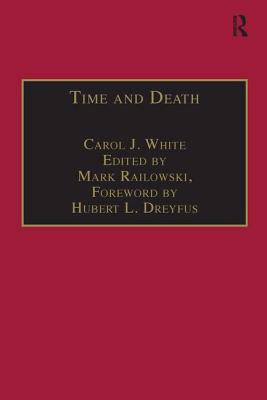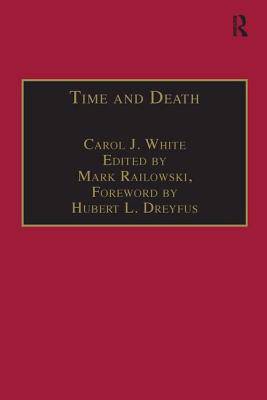
- Afhalen na 1 uur in een winkel met voorraad
- Gratis thuislevering in België vanaf € 30
- Ruim aanbod met 7 miljoen producten
- Afhalen na 1 uur in een winkel met voorraad
- Gratis thuislevering in België vanaf € 30
- Ruim aanbod met 7 miljoen producten
Zoeken
€ 182,45
+ 364 punten
Uitvoering
Omschrijving
In Time and Death Carol White articulates a vision of Martin Heidegger's work which grows out of a new understanding of what he was trying to address in his discussion of death. Acknowledging that the discussion of this issue in Heidegger's major work Being and Time is often far from clear, White presents a new interpretation of Heidegger which short-circuits many of the traditional criticisms. White claims that we are all in a better position to understand Heidegger's insights after fifty years because they have now become a part of the conventional wisdom of common opinion. His view shows up in accounts of knowledge in the physical sciences, in the assumptions of the social sciences, in art and film, even in popular culture in general, but does so in ways ignorant of their origins. Now that these insights have filtered down into the culture at large, we can make Heidegger intelligible in a way that perhaps he himself could not. White presents the best possible case for Heidegger, making him more intelligible to those people with a long acquaintance with his work, those with a long aversion to it and in particular to those just starting to pursue an interest in it. White places the problems with which Heidegger is dealing in the context of issues in contemporary Anglo-American philosophy, in order to better locate him for the more mainstream audience. The language and approach of the book is able to accommodate the novice but also offers much food for thought for the Heidegger scholar.
Specificaties
Betrokkenen
- Auteur(s):
- Uitgeverij:
Inhoud
- Aantal bladzijden:
- 232
- Taal:
- Engels
- Reeks:
Eigenschappen
- Productcode (EAN):
- 9780754650089
- Verschijningsdatum:
- 17/02/2005
- Uitvoering:
- Hardcover
- Formaat:
- Genaaid
- Afmetingen:
- 156 mm x 233 mm
- Gewicht:
- 452 g

Alleen bij Standaard Boekhandel
+ 364 punten op je klantenkaart van Standaard Boekhandel
Beoordelingen
We publiceren alleen reviews die voldoen aan de voorwaarden voor reviews. Bekijk onze voorwaarden voor reviews.











